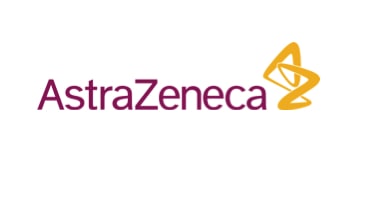
AstraZeneca has more data in hand to support the use of its BTK inhibitor in chronic lymphocytic leukaemia (CLL), opening up a second front in its market battle with AbbVie/Johnson & Johnson’s Imbruvica.
New phase 3 data reported at the European Haematology Association (EHA) congress in Amsterdam over the weekend showed that Calquence (acalabrutinib) significantly prolonged the time relapsed or refractory CLL patients live without disease progression compared to a physician’s choice of treatment by 69%.
The ASCEND study pitted Calquence against Roche’s Rituxan (rituximab) combined with either Gilead’s Zydelig (idelalisib) or bendamustine, and will be used to support regulatory filings later this year along with the earlier ELEVATE trial in previously-untreated CLL.
The median time without disease progression for patients treated with Calquence has not yet been reached vs. 16.5 months in the control arm. After 12 months, 88% of patients on Calquence showed no disease progression compared to 68% of the control arm.
According to lead investigator Paolo Ghia of the Università Vita-Salute San Raffaele in Italy, ASCEND is the first trial to test a BTK inhibitor as a monotherapy against these standard chemoimmunotherapy regimens.
That could give Calquence a leg-up as it tries to make inroads against Imbruvica (ibrutinib), which is already approved as a first- and second-line therapy for CLL and a blockbuster product with sales of $3.6bn in 2018 and a target of $4.4bn this year across a broad range of haematological cancer indications.
Calquence is currently a minnow in comparison, making $62m last year as a treatment for mantle cell lymphoma (MCL), its first and only approved indication at the moment. All those sales came from the US, and with the first ex-US approvals now coming in and filing in the much-larger CLL population coming soon, AZ reckons it will see a sales acceleration in the next couple of years.
AZ has a host of studies testing its BTK inhibitor in diseases such as multiple myeloma, Waldenström macroglobulinaemia and diffuse large B-cell lymphoma as it chases its rival, and claims it is already mounting a strong challenge to AbbVie/J&J’s drug in MCL with a 40% share of new prescriptions in MCL.
AZ’s head of oncology R&D José Baselga said the new ASCEND data “add to the growing body of evidence to support the profile of Calquence as a selective BTK inhibitor that offers a chemotherapy-free treatment option with a favourable safety profile in CLL.”
Earlier this month AZ reported that Calquence alone or in combination with Roche’s Gazyva (obinutuzumab) significantly increased the time patients lived without disease progression compared to Gazyva and chlorambucil chemotherapy.
The drug is one of two that AZ is relying on to build a franchise blood cancers along with Lumoxiti (moxetumomab pasudotox) which was approved last year for hairy cell leukaemia (HCL).




